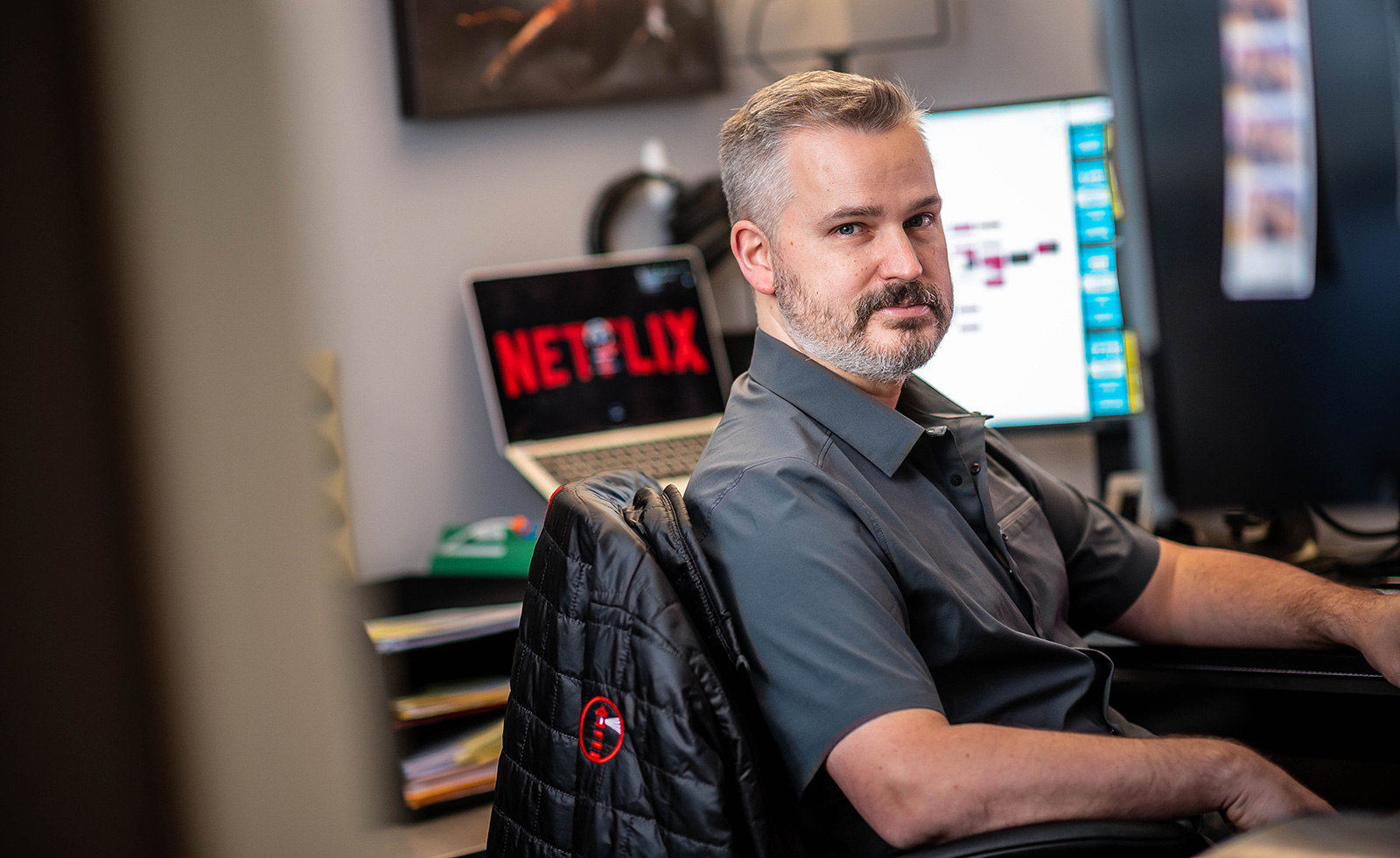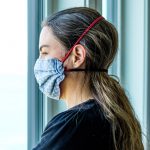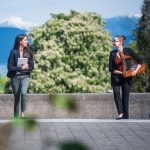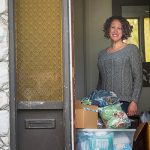
At the start of 2020, Dr. Adam Lund was preparing for another busy year of helping keep people safe at marathons and music festivals.
For more than two decades, Dr. Lund—an emergency room physician and clinical professor in the UBC department of emergency medicine by day—has spent his free time as a medical and first-aid director at large-scale events. As a researcher, he also leads a working group at UBC conducting research to help identify risk factors associated with mass gatherings.
“We had a whole year of festivals and races and big mass gatherings planned, but then COVID-19 hit and all major planned events were put on hold,” said Dr. Lund. “So, it was like, what now?”
From the hospital to Hollywood
During the first wave of the pandemic, Dr. Lund and his team quickly pivoted their work to help support emergency management planning for two local hospitals in Fraser Health. But by May, when the number of COVID-19 cases had significantly dropped in the region, Dr. Lund again found himself wondering what more he could do to help.
When a friend mentioned that they were trying to develop COVID-19 safety plans for the local film and TV industry to return to production, he realized his planning expertise could be useful. In July, Dr. Lund began consulting with producers of a few locally filmed TV shows, when his work caught the attention of Netflix executives who wanted to know if he could help with their productions.
“Netflix was already doing really good work with COVID-19 planning, but they thought I could maybe be a helpful contributing member on their Canadian productions,” he says. “It has been a really interesting opportunity to be able to take the core concepts of event safety and apply them to a unique environment, and specifically one where people aren’t all necessarily trained in health care.”
The economic impact of B.C.’s film and TV industry
By August, Dr. Lund says his work with Netflix was keeping him so busy that he decided to apply for a one-year sabbatical from his clinical work to be able to work on the COVID safety program full-time. One reason behind the decision, says Dr. Lund, was seeing first-hand the impact of helping keep B.C.’s economy strong during the pandemic.
By helping keep the cameras rolling, vendors and suppliers for the industry have also been able to keep working, says Dr. Lund.
“Being able to keep this industry going means more people are able to keep bringing food home to their kids and pay their bills and to just keep going. In that sense, this has been a really satisfying challenge.”
Dr. Adam Lund
“It has a lot of ripple effects,” he adds. “Being able to keep this industry going means more people are able to keep bringing food home to their kids and pay their bills and to just keep going. In that sense, this has been a really satisfying challenge.”
‘The Swiss cheese model of risk reduction’
For the film and TV industry, the core concepts of COVID-19 safety in theory are straightforward and not unlike regular public health guidelines. They include enhanced cleaning and sanitizing protocols, maintaining at least two metres of physical distance, wearing masks, and performing regular COVID-19 testing of cast and crew members.
Doing hair and makeup on-set now looks more “like being in an operating room” in terms of hygiene protocols and personal protective equipment, or PPE, says Dr. Lund.
However, implementing the protocols on-camera can pose a unique set of challenges.
For example, actors wearing modern surgical masks would appear out-of-place in an 18th century period piece, so directors often need to get creative. PPE is incorporated into costume designs when possible, and directors are experimenting with camera placement and angles so actors appear close together but are still able to maintain physical distance.
Dr. Lund’s role is to work with the production crew and the new health and safety teams embedded on current productions, providing guidance on integrating strategies to mitigate the risk of transmission while also balancing their creative needs. The key, he says, is to strategically “stack” risk-mitigating steps on top of one another to create an environment that maintains a reasonable level of safety.
“It’s called the Swiss cheese model of risk reduction,” he explains. “No one intervention is perfect, but if we line up several strategies together, it’s like the holes in a slice of Swiss cheese.
As long as the holes don’t line up, we can create an effective sequence of strategies to reduce the risk as much as possible.
“It’s been a great learning experience to recognize the relative benefit of each type of intervention in each scenario and trying to be strategic about which ones make sense,” he adds.
Bringing new knowledge into the classroom
When his sabbatical is over, Dr. Lund says he is looking forward to bringing his new film and TV industry knowledge into his teaching and research work in the UBC faculty of medicine.
“I haven’t had a chance to pause and catch my breath yet, but I’m looking forward to bringing all that I’m learning back into the classroom,” he says.
“And there’s maybe just a sliver of bandwidth to start looking at this work academically as well, seeing if the information we’ve captured in this industry might be helpful for the larger effort of understanding this virus and how it spreads.”
Related Stories

Making a difference: UBC medical students support patients in self-isolation
Volunteers offer non-medical follow-up help and advice. Read More >

Combatting social isolation during COVID-19
New UBC initiative embraces technology to help seniors in long-term care. Read More >

Making a difference: Midwifery student connects midwives with personal protective equipment
Through Masks to Midwives initiative, more than 200 reusable surgical cap and gown sets, 2,000 surgical masks and 150 home-sewn masks have been distributed to midwifery practices in communities around B.C. Read More >

Making a difference: UBC students design low-cost ventilator for COVID-19
The design is among the final 10 in the international Code Life Ventilator Challenge. Read More >

Making a difference: UBC students help frontline medical workers during COVID-19
Medical students support health care providers with childcare, pet care and errands. Read More >